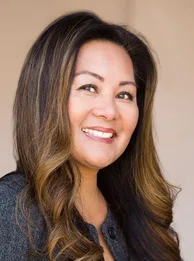Staying awake, rested and joyful in 2025
Equity Corner by Tracie Noriega
January 13, 2025

In previous articles, I wrote about the words “liberation” and “critical.” I asked us to consider these questions concerning liberation: Who gets to be free? Who decides who is free and who is not? What does freedom mean? Who decides what freedom means? Asking and answering these questions necessitates us to be critical thinkers.
One might say that some folks have been thinking critically about liberation. Across the nation, even in California, some people have been critical of what folks might call “woke” education — the notion that students are too aware of social issues and injustices. Those critical of “woke” education have proposed policies on book banning, censoring particular words or phrases, and excluding certain histories from the curriculum. On the other hand, some people have been critical of education, saying students should be more “woke,” more conscious of why injustices exist.
Let’s look at the word “woke.” Google says it is the past tense of “wake.” “Woke” is defined as being alert to and concerned about social injustice and discrimination. The word is also an adjective, interestingly, sometimes used in a derogatory way, calling folks “sensitive” about politics and social issues. The term “woke” has origins in the Black liberation movement. “Stay woke” has been an all-call to the Black community (and later to the larger BIPOC community) to remain vigilant and aware of ongoing oppression and racism.
A synonym for “woke” is to be “conscious.” Paolo Freire discusses having a critical consciousness. While consciousness is merely “the state of being awake,” a critical consciousness is “the ability to recognize oppressive social forces shaping society and to take action against them.” Taking action is always the hardest part.
Here’s something to consider: Those critical of wokeness are actually somewhat awake themselves. They actually acknowledge the inequities by stating that there are none. Why fight so hard against wokeness by banning AP African-American History and conversations about systemic racism? Why censor and ban ethnic studies experts or water down the curriculum? They see the inequities, but purposely work to cover it up. The proponents of anti-wokeness are those who would rather the rest of us stay asleep, unquestioning, uncritical, and remain unliberated.
Former Sen. Barbara Lee stated, “But we will only succeed if we reject the growing pressure to retreat into cynicism and hopelessness. … We have a moral obligation to ‘stay woke,’ take a stand and be active; challenging injustices and racism in our communities and fighting hatred and discrimination wherever it rises.” While folks may be motivated to create change, it is hard not to become cynical and hopeless, especially when you feel alone and exhausted. How do we avoid cynicism, hopelessness and exhaustion?
Audre Lorde’s famous quote, “Caring for myself is not self-indulgence, it is self-preservation, and that is an act of political warfare,” reminds us that we must not measure our worth by how tired and busy we are. To rest is to resist this capitalist notion that we must stay in constant “productivity.”
Saundra Dalton-Smith coined these seven forms of rest that all humans need. What type of rest do you need?
Physical rest: Helping the body to relax and heal, like sleep and walking.
Mental rest: Clearing mental space, using mindfulness practices.
Emotional rest: Acknowledging and owning feelings and needs.
Sensory rest: Pausing sensory overload from screens, books and audio.
Creative rest: Appreciating nature or practicing the arts.
Social rest: Spending time alone or with others you can relax with.
Spiritual rest: Reconnecting to purpose, grounding in community.
Audre Lorde also spoke about “joy.” She said, “ The sharing of joy, whether physical, emotional, psychic, or intellectual, forms a bridge between the sharers which can be the basis for understanding much of what is not shared between them, and lessens the threat of their difference.” Wow. Isn’t that exactly what our work has been about? Can we understand each other and not see our differences as threats?
So what does “joy” look, sound and feel like for you? What does joy look like for the various BIPOC communities? How can we understand and appreciate those similarities and differences? How can we share joy and create conditions where joy is centered in our lives? Our students’ lives?
Here’s another thing to consider. Knowing why rest and joy were weaponized against BIPOC communities to create negative, dehumanizing stereotypes is wokeness. An understanding of why rest and joy are important in our lives as human beings is wokeness. Committing to rest and joy is part of the moral obligation to stay woke.
This year will bring numerous situations and conditions that will challenge us as educators. We will encounter many dilemmas that will test our bottom lines. Will we be rested and ready? Undoubtedly, we’ll also experience amazing things, many of which will be the result of work for students. Let’s be ready for whatever comes. Let us commit to incorporating more rest and creating more joy in our lives this year.
As we celebrate the birthday of Martin Luther King, Jr. on Jan. 20, I leave you with this quote from his 1959 speech to Morehouse graduates. It is a message still pertinent 66 years later:
“The great question facing us today is whether we will remain awake through this worldshaking revolution and achieve the new mental attitudes which the situations and conditions demand.”
We are still in this revolution, so stay woke, rested and joyful my friends!
Tracie Noriega is ACSA’s senior director of Diversity, Equity, Inclusion, and Professional Learning.




